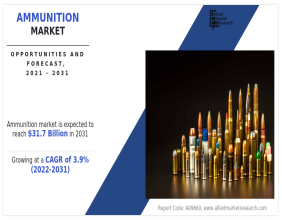Highlights
- Country economic risk refers to economic developments in a nation that can impact international financial dealings.
- Factors like inflation, fiscal policy, and political stability influence this type of risk.
- Managing country economic risk is crucial for businesses and investors engaged in global markets.
In the realm of international finance and trade, country economic risk refers to the potential for economic developments within a specific country to affect the outcome of an international financial transaction. These developments can arise from a variety of factors, including changes in the national economy, political decisions, inflation rates, or shifts in the fiscal or monetary policies of the government. Country economic risk is an essential consideration for businesses and investors operating across borders, as it can significantly impact profitability, investment returns, and the overall success of international ventures.
What Constitutes Country Economic Risk?
Country economic risk is broad and encompasses several different aspects of a nation's economy that may create uncertainty or instability in international transactions. Some of the key factors that contribute to this type of risk include:
- Inflation: High or unpredictable inflation rates can erode the value of the local currency, leading to significant changes in the pricing structure of goods and services. This can affect both the cost of exports and imports, as well as the overall profitability of international investments.
- Exchange Rates: Fluctuating exchange rates can impact the value of financial assets held in foreign currencies. For example, if a country’s currency depreciates, the value of investments denominated in that currency might decline, leading to losses for foreign investors.
- Fiscal and Monetary Policies: The government’s fiscal policies, including taxation and public spending, can influence business conditions. Likewise, monetary policy decisions, such as changes in interest rates or money supply, can have far-reaching effects on economic activity, inflation, and investor sentiment.
- Political Instability: Economic risk is often intertwined with political risk. A country’s political climate, such as changes in government leadership, civil unrest, or shifts in regulatory policies, can influence the economic environment and create unpredictability for international transactions.
- Economic Growth: The overall economic health of a country, including its GDP growth rate, employment levels, and industrial output, can directly affect market conditions and the likelihood of success for foreign investments. Slow or negative growth can signal trouble for foreign investors expecting high returns
The Role of Country Economic Risk in International Transactions
For businesses and investors involved in international financial transactions, understanding and managing country economic risk is crucial. These risks can affect several aspects of cross-border investments, including:
- Revenue and Profitability: Fluctuations in a country's economy, such as a sudden recession or inflationary pressures, can have a direct impact on the revenues and profitability of businesses. For example, a company exporting goods to a country with a weakened economy might find that demand for its products drops, or that it cannot collect payments as easily due to currency depreciation.
- Investment Security: For international investors, country economic risk can affect the security of their investments. A downturn in the national economy or political upheaval can lead to changes in laws, expropriation of assets, or even capital controls that restrict the movement of money. These events can cause significant financial losses and disrupt business operations.
- Trade Agreements and Terms: The economic conditions within a country often influence the terms of trade agreements, tariffs, and import-export regulations. Changes in government policy can lead to new trade barriers or more favorable terms that could either increase costs or create new opportunities for international business.
Managing Country Economic Risk
Businesses and investors can mitigate country economic risk through several strategies:
- Diversification: One of the most effective ways to reduce country economic risk is by diversifying investments across different regions and markets. By not concentrating assets in one country, the potential negative impact of adverse economic events can be minimized.
- Hedging: Currency hedging is a common strategy used to protect against fluctuations in exchange rates. Companies can lock in exchange rates or use financial instruments such as options and futures to hedge against potential losses caused by adverse movements in foreign currencies.
- Risk Assessment and Monitoring: Regularly assessing and monitoring the economic and political conditions in countries where investments are held can provide valuable insights into emerging risks. This allows businesses to make informed decisions about the stability of their investments and adjust strategies accordingly.
- Political and Economic Insurance: Some businesses and investors purchase political risk insurance or economic risk insurance, which protects against financial losses caused by political instability, expropriation, currency inconvertibility, or other economic disruptions.
- Collaborating with Local Partners: Working with local partners or joint ventures can provide insights into the country’s economic climate and help mitigate risks. Local partners are often better positioned to navigate the political, legal, and economic conditions in their country, reducing exposure to sudden shocks.
Real-World Examples of Country Economic Risk
- Currency Crises: The Asian Financial Crisis of 1997 is a prime example of how country economic risk can disrupt international markets. Several Southeast Asian countries, including Thailand, Indonesia, and South Korea, experienced rapid depreciation of their currencies, leading to financial instability and significant losses for foreign investors.
- Hyperinflation in Venezuela: In recent years, Venezuela has experienced hyperinflation, which has drastically reduced the purchasing power of its currency. For foreign companies operating in the country, this economic turmoil has created substantial challenges, as currency devaluation and inflation have made it difficult to predict costs and revenues.
- Brexit: The United Kingdom’s decision to leave the European Union, commonly known as Brexit, created significant economic uncertainty for businesses and investors. Currency fluctuations, changing trade policies, and regulatory shifts led to market volatility, particularly for companies with cross-border operations in Europe.
Conclusion
Country economic risk is a critical factor in the decision-making process for international businesses and investors. Economic developments such as inflation, currency fluctuations, political instability, and fiscal policies can significantly influence the outcomes of international financial transactions. While it is impossible to completely eliminate country economic risk, businesses can mitigate its impact by diversifying their investments, employing hedging strategies, and staying informed about the political and economic conditions of the countries in which they operate. By understanding and managing these risks effectively, companies and investors can navigate the complexities of global markets and enhance their chances of long-term success.



